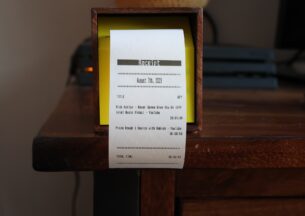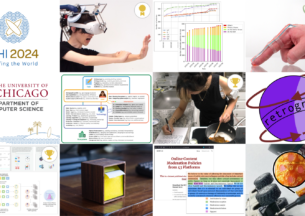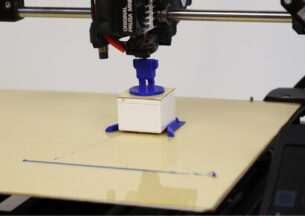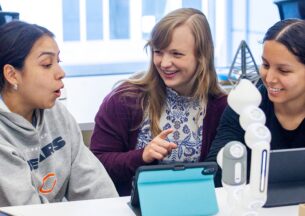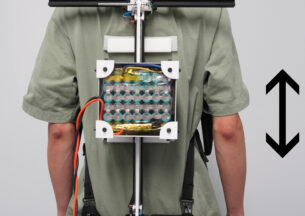UChicago Hosts Second Midwest Machine Learning Symposium
On June 6th and 7th, the University of Chicago played host to the 2018 Midwest Machine Learning Symposium (MMLS), a two-day event that brought together experts from academia and industry to share research in talks, posters, and panels.
Before a crowd of 400 at the Reva and David Logan Center for the Arts, speakers presented the latest research findings in the theory and practice of machine learning, with applications in neuroscience, anti-terrorism, the design of new materials, self-driving cars, and many more subject areas.
Today, machine learning is in the unique position of being a hot topic in both the business and academic worlds. Reflecting this interest, MMLS mixed presentations from scientists at tech companies such as Microsoft, Google, and Amazon with talks from faculty at institutions such as the University of Illinois Urbana-Champaign, Purdue, and the Toyota Technological Institute at Chicago (TTIC).
The interplay of industry and academia in machine learning is not unlike the historic relationship between physics and engineering, said Avrim Blum, Chief Academic Officer at TTIC. Where tech companies are primarily interested in what machine learning approaches work best for their product, academic researchers study why one approach works better than another, discovering the math and statistics fundamentals beneath the hood. Industry is the source of observations that academics try to understand, Blum said.
That partnership will become even more critical as the creation of new forms of machine learning accelerates. Alex Schwing, an assistant professor of computer and electrical engineering at UIUC, framed the rise of machine learning as a transition from the passive tools that have driven human technology and society thus far to active tools that work more autonomously. In Schwing’s research, adversarial networks work together to fill in the missing chunks of images or even create entirely new images, with one network trying to produce realistic results while the other distinguishes real from fake with little or no human input.
While machine learning is largely based on statistics approaches, the new algorithm presented by Rob Schapire from Microsoft Research also pulled from classic psychology theory. Reinforcement learning, popularized by B.F. Skinner in the early 20th century, described how rewards and punishment can change an organism’s behavior. Machine learning experts are now exploring similar approaches for applications such as training robots to navigate a complex environment — and along the way, gaining new theoretical insights on how to measure the amount of structure in the data of a given learning problem.
Fields such as data science and artificial intelligence heavily overlap with machine learning, and as they gain traction and funding, they face similar technical and theoretical questions. Patrick Wolfe, dean of science at Purdue University and trustee for the UK’s Alan Turing Institute, outlined the several shared challenges for machine learning and data science, including fusing multimodal data at scale, anomaly detection in streaming data, and co-design of new algorithms and architectures. But the potential downstream benefits of these research pursuits, for science, business, and society, should provide ample motivation for the field, he said.
“Much of the data that has been generated and holds interest for analysis is ultimately of or about human beings,” Wolfe said. “The opportunities to understand human and organizational behavior are greater than they’ve ever been.”
You can view the complete agenda of MMLS 2018 here.



